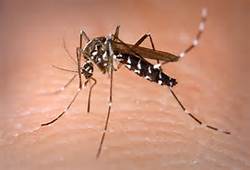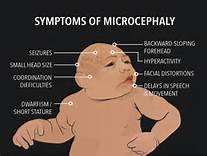
Zika Virus News You Need To Know
You’ve heard a lot about it in the news already and as fear grows over the Zika virus and its potential effects on pregnant mothers and their unborn children, the need to understand the disease—what it is and isn’t and what it can and can’t do becomes all the more important.
Here’s everything that you need to know about the Zika virus so you’ll have a solid foundation to take appropriate steps to protect yourself and any future family you’re either carrying or planning on having.
First off, although the virus has made its way into the hearts and minds of Americans lately , it turns out the disease is really nothing new, was first discovered in Uganda in 1947 and was named after the forest where it originated. This mosquito-borne illness is transferred in the  bites of those very insects that can carry other infamous diseases like the Dengue virus and has made itself known on an alarming scale in Latin America, the Caribbean and has even made inroads into Mexico and Puerto Rico. There have been 50 cases reported in the United States.
bites of those very insects that can carry other infamous diseases like the Dengue virus and has made itself known on an alarming scale in Latin America, the Caribbean and has even made inroads into Mexico and Puerto Rico. There have been 50 cases reported in the United States.
Deceiving
The Zika virus is deceiving with symptoms that are usually not too severe—joint pains, fever and rashes have been documented along with muscle pains and even headaches. These symptoms last only a few days to a week and there are even a large number of infected people that report having no symptoms at all.
Therein lies the Trojan Horse like quality of the virus since one of the real dangers to pregnant women who contract the disease is microcephaly, which is a medical condition where children are born with unusually small heads and quite often mental disabilities.
Ground Zero
Ground zero for the latest outbreak is Brazil where the disease first showed itself in May and authorities there estimate somewhere between 440,000 and 1.3 million people have been infected since. To make matters even more concerning, health officials in that country also report 4000 babies have been born with microcephaly. That number is an alarming spike from the less than 150 similar children born with the defect in 2014.
While there hasn’t been a conclusive link established between microcephaly and the Zika virus, researchers are pointing out there’s a very  real possibility one exists.
real possibility one exists.
Now that you understand the origins of the disease and its inherent danger to pregnant women, you should know what you can be doing to protect yourself regardless of whether you’re currently pregnant or have plans to start a family in the near future.
Approved Repellent
If you’re traveling to affected areas, you’ll want to protect yourself as best as you can from unnecessary risk. Using an approved mosquito repellent is a good first step and you should look for one that’s been approved by the Environmental Protection Agency. Long sleeved shirts and pants are another important measure to take. Also try to buy clothing that’s been treated with permethrin. Pregnant women should also take preventive measures like using condoms when having sex with their partners, especially when either has traveled to an infected area as there have been a few instances of sexual transmission of the virus.
Read more info like this at All My Children.
Author: Rob Starr